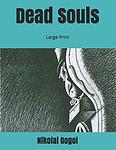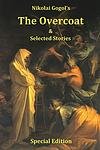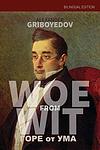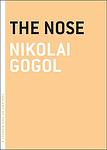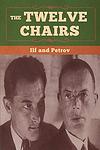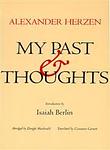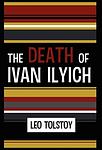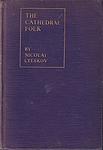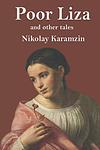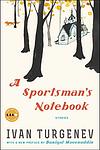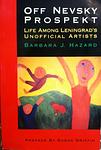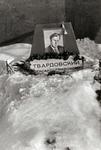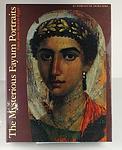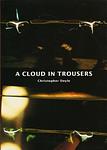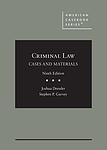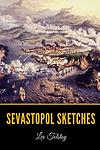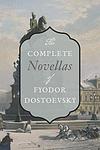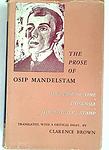The Main Works of Russian literature
This is one of the 284 lists we use to generate our main The Greatest Books list.
-
A Hero of Our Time by Mikhail Lermontov
"A Hero of Our Time" is a novel that follows the life of a young, charismatic, yet cynical and emotionally detached Russian officer, who serves in the Caucasus region. The story is told through a series of narratives, including the officer's own journal entries, revealing his manipulative and self-destructive tendencies. The novel explores themes of disillusionment, morality, and the nature of heroism in the 19th century Russian society.
-
Anna Karenina by Leo Tolstoy
Set in 19th-century Russia, this novel revolves around the life of Anna Karenina, a high-society woman who, dissatisfied with her loveless marriage, embarks on a passionate affair with a charming officer named Count Vronsky. This scandalous affair leads to her social downfall, while parallel to this, the novel also explores the rural life and struggles of Levin, a landowner who seeks the meaning of life and true happiness. The book explores themes such as love, marriage, fidelity, societal norms, and the human quest for happiness.
-
Dead Souls by Nikolai Gogol
In this satirical novel, a man travels through Russia buying up the titles to deceased serfs (or "souls") from their naive landowners, under the guise of a get-rich-quick scheme. However, his real plan is to use these "dead souls" to create a phantom estate and secure a massive loan. The story explores the corruption and greed prevalent in 19th-century Russian society and provides a unique perspective on the human condition.
-
The Captain's Daughter by Alexander Pushkin
The novel is a historical romance set against the backdrop of the Pugachev Rebellion during the reign of Catherine the Great. It follows the young nobleman Pyotr Grinyov as he is sent to a remote military outpost where he falls in love with Masha, the daughter of the fort's captain. Their idyllic life is shattered by the uprising of the Cossack leader Pugachev, who claims to be the true tsar. Amidst the chaos, Grinyov must navigate a path between his loyalty to the crown, his love for Masha, and the unpredictable mercy of the rebel leader, whose favor he inadvertently gains. The story blends adventure, love, and historical drama, exploring themes of honor, fate, and the complexities of human nature.
-
War and Peace by Leo Tolstoy
Set in the backdrop of the Napoleonic era, the novel presents a panorama of Russian society and its descent into the chaos of war. It follows the interconnected lives of five aristocratic families, their struggles, romances, and personal journeys through the tumultuous period of history. The narrative explores themes of love, war, and the meaning of life, as it weaves together historical events with the personal stories of its characters.
-
The Foundation Pit by Andrey Platonov
The book is a dark and satirical portrayal of the Soviet Union's early years of communism, focusing on a group of workers involved in the construction of a gigantic pit intended to lay the foundations for a utopian future. As they dig deeper, the narrative delves into the absurdities and tragedies of the Soviet system, revealing the disconnect between the lofty ideals of the revolution and the harsh realities faced by the people. The characters, ranging from disillusioned laborers to ideologically blinded officials, grapple with the meaning of progress and human purpose in a society where language and thoughts are contorted by political dogma, ultimately questioning the human cost of a forced march towards a promised paradise.
-
Moscow Petushki by Venedikt Yerofeev
The book is a surreal and satirical narrative that takes the reader on a tragicomic journey aboard a suburban train from Moscow to the small town of Petushki. The protagonist, a disillusioned intellectual and alcoholic, engages in philosophical musings and encounters a variety of eccentric characters, each embodying different aspects of Soviet life. As he delves into ruminations on love, suffering, and the search for meaning amidst the absurdities of existence, the journey becomes a metaphor for the human condition and the societal decay of the USSR, blending dark humor with poignant introspection.
-
The Brothers Karamazov by Fyodor Dostoevsky
This classic novel explores the complex, passionate, and troubled relationship between four brothers and their father in 19th century Russia. The narrative delves into the themes of faith, doubt, morality, and redemption, as each brother grapples with personal dilemmas and family conflicts. The story culminates in a dramatic trial following a murder, which serves as a microcosm of the moral and philosophical struggles faced by each character, and by extension, humanity itself.
-
The Idiot by Fyodor Dostoevsky
The book follows the story of a kind-hearted and naive protagonist who returns to Russia from a Swiss sanatorium, where he was treated for a severe epileptic condition. Despite his pure intentions, he gets entangled in a web of love, greed, and manipulation, leading to tragic consequences. The novel explores themes of innocence, love, sacrifice, and societal expectations, offering a profound critique of Russian society during the 19th century.
-
Petersburg by Andrei Bely
"Petersburg" is a symbolist novel set in the heart of Russia during the 1905 Revolution. It follows the story of a young man who is given the task of assassinating his own father, a high-ranking government official, by a radical political group. The narrative is a complex mix of politics, family drama, and philosophical introspection, all set against the backdrop of a city in turmoil. The novel is renowned for its vivid and poetic descriptions of the city itself, making Petersburg as much a character in the story as the people who inhabit it.
-
Crime and Punishment by Fyodor Dostoevsky
A young, impoverished former student in Saint Petersburg, Russia, formulates a plan to kill an unscrupulous pawnbroker to redistribute her wealth among the needy. However, after carrying out the act, he is consumed by guilt and paranoia, leading to a psychological battle within himself. As he grapples with his actions, he also navigates complex relationships with a variety of characters, including a virtuous prostitute, his sister, and a relentless detective. The narrative explores themes of morality, redemption, and the psychological impacts of crime.
-
The Cherry Orchard by Anton Chekhov
"The Cherry Orchard" is a classic play about an aristocratic Russian woman and her family as they return to their family estate, which includes a large and well-known cherry orchard. The family is on the brink of financial ruin and the estate is slated to be auctioned off. Despite various attempts to save their beloved home and orchard, they are ultimately unable to prevent the sale. The play is a poignant reflection on the changing social order and the decline of the aristocracy in Russia at the turn of the 20th century.
-
Red Cavalry by Isaac Babel
The book is a collection of short stories that delve into the experiences of a Jewish political commissar serving with the Cossack regiment in the Soviet Red Army during the Polish-Soviet War of 1919-1921. Through a series of vivid, often brutal vignettes, the narrative explores the harsh realities of war, the cultural tensions between the Jewish intellectual and the Cossack soldiers, and the moral ambiguities faced by individuals caught in the turmoil of conflict. The stories are renowned for their stark, powerful prose and their unflinching examination of the human condition amidst the chaos of war.
-
Kolyma Stories by Varlam Shalamov
"Kolyma Stories" is a collection of short stories that vividly depict the harrowing experiences of prisoners in the Soviet Gulag during the Stalinist era. Written by Varlam Shalamov, a survivor of the Kolyma labor camps himself, the book offers a raw and unflinching portrayal of the inhumane conditions, extreme suffering, and moral degradation endured by the prisoners. Through his powerful and haunting narratives, Shalamov sheds light on the resilience of the human spirit and the indomitable will to survive amidst unimaginable cruelty.
-
Little Devil by Fedor Sologub
"Little Devil" is a dark and symbolic tale set in pre-revolutionary Russia, exploring the themes of evil and corruption through the eyes of a young boy. The protagonist, an outcast in his rural village, is both tormented and fascinated by the malevolent forces he perceives around him. As he delves deeper into his own imagination and the sinister aspects of human nature, the line between reality and fantasy blurs, leading to a series of tragic events. The novel delves into the psychological and moral decay of its characters, reflecting the broader societal decay of the time.
-
Envy by Yury Olesha
The novel is a satirical exploration of the conflict between the old, pre-revolutionary generation and the new Soviet order. It centers on Nikolai Kavalerov, a man who finds himself homeless and disillusioned with the socialist society around him. He is taken in by Andrei Babichev, an ardent supporter of the new regime and the creator of the perfect Soviet food, the "Olympian sausage." Kavalerov becomes envious of Babichev's success and his revolutionary brother Ivan, leading to a psychological struggle that reflects the larger societal tensions of the time. The narrative delves into themes of identity, purpose, and the nature of envy, as characters grapple with their roles in a rapidly changing world.
-
Demons by Fyodor Dostoevsky
"The Possessed" is a complex political novel set in a provincial Russian town, exploring the destructive influence of radical ideologies on society. The narrative revolves around a group of revolutionaries, their philosophical debates and their destructive actions, driven by nihilism and anarchism. The story is a critique of the political and social chaos of the time, showcasing the author's deep understanding of human psychology and his profound insights into the human condition. It is an exploration of faith, reason, and the nature of freedom and is considered one of the most significant works of Russian literature.
-
Eugene Onegin by Alexander Pushkin
"Eugene Onegin" is a classic Russian novel in verse that tells the story of a sophisticated and cynical young man, Eugene Onegin, who moves from the city to the country following the death of his uncle. Throughout the novel, Onegin engages in a series of interactions with other characters, including Tatyana, a young country woman who falls in love with him. Despite her sincere love, Onegin rejects Tatyana, leading to a tragic duel with his friend Lensky. The novel is renowned for its exploration of Russian society, love, and the human experience.
-
Overcoat by Nikolai Gogol
The narrative centers on a meek and downtrodden government clerk living in St. Petersburg, whose life is consumed by the desire to replace his threadbare overcoat. After much sacrifice, he finally acquires a new overcoat, which momentarily elevates his social standing and brings him brief joy. However, his triumph is short-lived as the overcoat is stolen, plunging him back into misery. The clerk's desperate attempts to recover his lost garment ultimately lead to his untimely death, and his ghost is said to haunt the city, searching for the stolen overcoat, in a tale that intertwines the tragic with the absurd, and critiques the indifference of society to the plight of its less fortunate members.
-
Goat Song by Konstantin Vaginov
"Goat Song" is a satirical novel that delves into the life of a disillusioned intellectual in post-revolutionary Russia. The protagonist, a poet, grapples with the banality and absurdity of his existence in a society undergoing rapid and disorienting change. Through a series of allegorical and often surreal episodes, the narrative critiques the cultural and spiritual decay of the time, juxtaposing classical references and modernist sensibilities to explore themes of artistic integrity, societal collapse, and the search for meaning in a world that seems increasingly hostile to the individual's quest for identity and purpose.
-
The Gift by Vladimir Nabokov
"The Gift" is a novel that tells the story of Fyodor, a Russian émigré living in Berlin, who is struggling to establish himself as a writer. The book explores his life, love, and the process of writing, along with his relationships with his fellow Russian émigrés. The narrative also delves into Fyodor's admiration for his father, a renowned explorer who mysteriously disappeared on an expedition. The novel is a profound examination of the creative process, the expatriate experience, and the power of art.
-
Chevengur by Andrey Platonov
The book is a complex and philosophical tale set in the aftermath of the Russian Revolution, exploring the lives of various characters in a small town as they grapple with the utopian ideals of communism and the harsh realities of its implementation. Through the experiences of these characters, including a young revolutionary and a disenchanted wanderer, the narrative delves into themes of human nature, societal transformation, and the search for meaning in a world undergoing radical change. The story's blend of surrealism, poetic language, and political commentary creates a unique and often disquieting examination of the Soviet dream and the disillusionment that followed its pursuit.
-
A School For Fools by Sasha Sokolov
The novel presents a fragmented and surreal narrative that delves into the mind of a young boy with a learning disability, attending a special school in the Soviet Union. Through a stream-of-consciousness style, the book explores the boy's experiences and perceptions, blending reality with fantasy, and time with memory. The protagonist's inner world is rich with poetic language and vivid imagery, reflecting his struggle to find his place in a society that marginalizes those who are different. The narrative structure defies conventional storytelling, offering a unique and challenging perspective on the nature of sanity, the power of institutions, and the complexity of the human psyche.
-
The Belkin Tales by Alexander Pushkin
"The Belkin Tales" is a collection of five short stories framed as narratives gathered by the fictional editor Ivan Belkin. Each story delves into themes of love, fate, and the ironies of life, exploring the human condition through a variety of characters and situations. From the tragic love triangle in "The Shot" to the supernatural elements of "The Undertaker," the tales offer a glimpse into Russian society and the complexities of the human heart. Pushkin's masterful storytelling weaves together elements of realism and romanticism, creating a poignant and enduring work that reflects the author's keen observation and narrative skill.
-
Oblomov by Ivan Goncharov
The book is a satirical critique of the nobility in 19th century Russia, focusing on the titular character, a lazy and apathetic nobleman who prefers to daydream and live in his own fantasies rather than engage with the real world. His indolence is contrasted with the energetic and ambitious character of his friend who tries to get him involved in societal affairs and business. The protagonist's lethargy and inability to adapt to changing times symbolize the decay and stagnation of the Russian nobility.
-
We by Yevgeny Zamyatin
In this dystopian novel, the story is set in the future, where the protagonist, a mathematician, lives in a highly regulated society where citizens are known by numbers, not names, and every action is dictated by the state. Individuality and freedom are suppressed, and even the concept of love is replaced by regulated sexual liaisons. The mathematician begins to question the infallibility of the state after meeting a rebellious woman, leading to a series of events that challenge the very foundations of his world.
-
The Government Inspector by Nikolai Gogol
The play is a satirical comedy that exposes the corruption and foolishness of the bureaucracy in a small Russian town. When officials mistake a lowly civil servant for a feared government inspector traveling incognito, they fall over themselves to cover up their town's numerous misdeeds. The visitor exploits the situation for personal gain, accepting bribes and enjoying the sycophantic hospitality of the town's officials, who are oblivious to his true identity. The story unfolds with a series of comedic misunderstandings and ironic twists, culminating in a final revelation that leaves the townspeople facing the consequences of their deception and moral laxity.
-
The Master and Margarita by Mikhail Bulgakov
This novel is a complex narrative that weaves together three distinct yet intertwined stories. The first story is set in 1930s Moscow and follows the devil and his entourage as they wreak havoc on the city's literary elite. The second story is a historical narrative about Pontius Pilate and his role in the crucifixion of Jesus Christ. The third story is a love story between the titular Master, a writer who has been driven to madness by the criticism of his work, and his devoted lover, Margarita. The novel is a satirical critique of Soviet society, particularly the literary establishment, and its treatment of artists. It also explores themes of love, sacrifice, and the nature of good and evil.
-
One Day in the Life of Ivan Denisovich by Aleksandr Solzhenitsyn
This novel provides a detailed account of a single day in the life of a prisoner, Ivan Denisovich, in a Soviet labor camp in the 1950s. The narrative follows Ivan as he navigates the harsh realities of his daily routine, from the moment he wakes up to when he goes to bed. The book provides a stark portrayal of the brutality and inhumanity of the Soviet gulag system while also highlighting the resilience and dignity of the human spirit under such oppressive conditions.
-
Fathers and Sons by Ivan Turgenev
This classic novel explores the generational divide and ideological clash in 19th century Russia. The story focuses on the relationship between a liberal father and his nihilistic son, who challenges the traditional values and beliefs of his elders. As they navigate their personal differences, the novel delves into broader themes of progress, love, and societal change, offering a poignant commentary on the tension between old and new ideas in a rapidly changing world.
-
Woe From Wit by Alexander Griboyedov
The play is a sharp satire on the social and political life of 19th-century Russia, depicting the clash between progressive ideas and the inertia of a society anchored in old-fashioned conventions and protocols. The protagonist, a witty and intellectual young man, returns to Moscow from abroad, only to find himself entangled in the superficial and hypocritical world of Moscow's elite. His sharp tongue and criticisms of the societal norms lead to misunderstandings and a tragic series of events, reflecting the author's commentary on the futility of intelligence and wit in a society that values appearance over substance.
-
The Nose by Nikolai Gogol
"The Nose" is a satirical short story that follows the life of a Russian official whose nose leaves his face and develops a life of its own. The nose transforms into a human and starts living as a higher-ranking official than its original owner. The story unfolds as the official tries to regain his lost nose, only to face numerous absurd and comical situations. The narrative is a critique of the social and bureaucratic conditions of 19th-century Russia.
-
The Twelve by Alexander Blok
"The Twelve" is a controversial and symbolist Russian poem that weaves together the chaotic and transformative energy of the 1917 Russian Revolution with mystical and religious elements. Set against the backdrop of a blizzard in Petrograd, the narrative follows twelve Red Army soldiers as they march through the city's streets, grappling with their purpose and the violent upheaval of the old order. The poem is renowned for its vivid imagery, complex allegories, and the provocative inclusion of a Christ-like figure amidst the revolutionary fervor, challenging readers to interpret the convergence of spiritual and political themes.
-
Boris Godunov by Alexander Pushkin
The narrative centers on the tumultuous political landscape of Russia following the death of Tsar Ivan the Terrible. It delves into the ascent of Boris Godunov to the Russian throne amidst power struggles, rumors, and the specter of a pretender claiming to be the rightful heir. The story explores themes of ambition, guilt, and the heavy burden of leadership as Boris grapples with his conscience and the consequences of his actions in a period marked by political intrigue, betrayal, and the quest for legitimacy in a nation on the brink of turmoil.
-
The History Of A Town by Mikhail Saltykov-Shchedrin
"The History of a Town" is a satirical novel that chronicles the absurd and often grotesque history of a fictional Russian town, serving as an allegory for the bureaucratic inefficiencies, corruption, and societal stagnation of Tsarist Russia. Through a series of vignettes and historical accounts, the narrative lampoons the town's inept leaders and the apathetic or complicit townsfolk, using dark humor and irony to critique the autocratic government and the broader socio-political climate of the time. The work is a scathing commentary on the folly of human nature and the cyclical nature of history, where progress is continually undermined by human vices and incompetence.
-
The Twelve Chairs by Ilya Ilf, Evgeniy Petrov
In this satirical novel, a former nobleman and a con artist form an unlikely partnership in pursuit of hidden treasure. After the Russian Revolution, fortunes are overturned, and the nobleman learns that his family jewels were sewn into one of the twelve chairs from a dining room set. As the chairs have been scattered by the new Soviet regime, the duo embarks on a wild chase across the USSR, encountering a colorful cast of characters and navigating the absurdities of the communist system. Their quest for wealth is a humorous reflection on human greed and the ironies of fate in a society undergoing radical change.
-
Invitation To A Beheading by Vladimir Nabokov
"Invitation To A Beheading" is a surreal and philosophical novel that follows the life of Cincinnatus C., a man sentenced to death in a totalitarian society for his perceived crime of being different. As Cincinnatus awaits his execution, he navigates a bizarre and absurd world filled with strange characters, dreamlike sequences, and a constant questioning of reality. Through his introspective journey, the novel explores themes of identity, freedom, and the power of the individual against oppressive systems.
-
Doctor Zhivago by Boris Pasternak
Set against the tumultuous backdrop of the Russian Revolution, the book follows the life of a physician and poet, Yuri Zhivago, as he navigates the political and social upheaval of the early 20th century. Torn between his love for two women, his wife Tonya and his passionate mistress Lara, Zhivago's personal struggles mirror the larger societal changes occurring around him. The novel explores themes of love, war, and the human spirit, offering a poignant and complex portrait of life during a time of revolutionary change.
-
The White Guard by Mikhail Bulgakov
Set against the backdrop of the Ukrainian city of Kiev during the tumultuous Russian Civil War of 1918, the novel follows the Turbin family as they navigate the chaos and shifting allegiances of the time. The story focuses on the two Turbin brothers, who are officers in the White Guard, a faction fighting to preserve the Russian Empire against the encroaching Bolshevik Red Army. As the city is besieged and alliances falter, the family grapples with questions of loyalty, survival, and the meaning of home amidst the collapse of the old world and the uncertainty of the new. The narrative combines a rich portrayal of historical events with a deeply personal family saga, exploring themes of courage, brotherhood, and the tragic futility of war.
-
Hadji Murat by Leo Tolstoy
The novella centers on the real-life figure Hadji Murat, a 19th-century Chechen rebel commander who, after a falling out with his own leader, Imam Shamil, defects to the Russians for a chance to avenge his family. Caught between the complex military and cultural conflicts of the Russian Empire and the fiercely independent Chechen tribes, Murat's struggle for honor, survival, and revenge reflects the brutal realities of the Caucasian War. As he navigates the treacherous political landscape, his story becomes a poignant exploration of loyalty, betrayal, and the dichotomies of human nature.
-
My Past And Thoughts by Aleksandr Herzen
The book is a rich and vivid memoir by a prominent Russian intellectual and revolutionary who lived through a period of profound social and political upheaval. It combines personal narrative with philosophical reflections, offering a penetrating look at the author's life experiences, from his aristocratic upbringing to his involvement in radical politics. The work delves into the author's ideological development, his relationships with key figures of his time, and his observations on the social issues and political movements that shaped the 19th century. It is a testament to the author's profound engagement with the ideas of freedom, justice, and human agency in the face of an oppressive regime and a changing world.
-
The Seagull by Anton Chekhov
The play revolves around the complex interplay of love, art, and the pursuit of happiness among a group of characters gathered at a Russian country estate. Central to the narrative is a young aspiring playwright, who yearns for the recognition of his art and the love of a woman, an actress infatuated with a successful writer. The story unfolds as these characters grapple with unrequited affections, artistic ambitions, and the crushing weight of societal expectations, leading to a tapestry of human desires, disillusionment, and the search for meaning in life.
-
The Death of Ivan Ilyich by Leo Tolstoy
The book is a poignant exploration of mortality and the human condition, focusing on a high-court judge in 19th-century Russia who lives a seemingly successful and conventional life. However, when he is confronted with a terminal illness, he begins to question the meaning and value of his life, leading to an existential crisis and eventual spiritual awakening. Through his struggle, he comes to realize the superficiality of his previous life and the importance of genuine human connection. His story is a profound commentary on the nature of life, death, and the pursuit of happiness.
-
The Bronze Horseman by Alexander Pushkin
The narrative poem is a romantic tale set against the backdrop of the monumental flood of 1824 in Saint Petersburg, Russia. It follows the young Evgenii, who falls passionately in love with Parasha, a beautiful girl he encounters in the city. However, their budding romance is tragically interrupted by the catastrophic flood, which wreaks havoc across the city. In the aftermath, Evgenii's mind becomes unhinged by the loss and devastation, leading him to fixate on the equestrian statue of Peter the Great, The Bronze Horseman, which he blames for his misfortune. The poem explores themes of man versus nature, fate, and the individual against the backdrop of historical progress.
-
Diary Of A Madman by Nikolai Gogol
The book is a dark and satirical short story presented as a series of diary entries from a low-ranking civil servant who gradually descends into insanity. As he becomes increasingly alienated from society, he develops delusions of grandeur and believes himself to be of noble descent. His madness escalates as he convinces himself that he can understand the conversations of dogs and that he is destined to become the king of Spain. The narrative provides a poignant critique of the bureaucratic world and the protagonist's struggle with his identity and self-importance, reflecting the absurdities and injustices of the society in which he lives.
-
The Little Tragedies by Alexander Pushkin
"The Little Tragedies" is a collection of four dramatic poems that delve into themes of greed, envy, lust, and the destructive nature of human passions. Each poem presents a compact narrative focusing on a protagonist who succumbs to a fatal flaw, leading to their downfall. The characters, drawn from various historical and fictional sources, are placed in intense, morally complex situations that ultimately bring about tragedy through their own actions. The work is a profound exploration of the darker aspects of human nature and the consequences of unchecked desires, showcasing the author's skill in blending poetic language with dramatic intensity.
-
The Cathedral Folk by Nikolai Leskov
"The Cathedral Folk" is a novel set in 19th-century Russia, revolving around the lives of the people connected to the construction of a grand cathedral. The narrative delves into the intricacies of Russian society, exploring themes of faith, tradition, and the conflicts between progress and the preservation of the old ways. Through a rich tapestry of characters, including craftsmen, clergy, and local gentry, the book examines the human spirit and the complexities of moral choices in a time of social change, all while painting a vivid picture of Russian provincial life with its unique blend of piety, superstition, and the struggle for personal redemption.
-
The Fourth Prose by Osip Mandelshtam
"The Fourth Prose" is a collection of autobiographical sketches and essays that delve into the author's reflections on literature, culture, and his own experiences. Through a series of lyrical and philosophical musings, the work explores the nature of artistic creation, the role of the poet in society, and the oppressive political climate of the author's time. The prose pieces are marked by their rich language and imagery, as well as their deep engagement with the European literary tradition, all while offering a poignant critique of the totalitarian regime under which the author lived, ultimately serving as a testament to the enduring power of the human spirit and the written word.
-
Poor Liza by Nikolay Karamzin
The narrative revolves around a tragic love story between Liza, a simple and innocent Russian peasant girl, and Erast, a nobleman with fickle affections. Liza falls deeply in love with Erast, who initially reciprocates her feelings but eventually abandons her for a life in the city and the pursuit of wealth and social status. Liza, heartbroken and unable to reconcile with her loss, ultimately drowns herself in despair. The story serves as a poignant exploration of the societal divide between the peasantry and the nobility, the destructive power of unrequited love, and the clash between traditional rural life and the encroaching influence of modernity.
-
A Sportsman's Notebook by Ivan Turgenev
"A Sportsman's Notebook" is a collection of vignettes and short stories that offer a rich portrayal of 19th-century Russian rural life and landscapes, as observed by a nobleman with a passion for hunting. Through his excursions into the countryside, the narrator encounters a diverse array of peasants and landowners, revealing the social injustices and feudal systems that define their existence. The work is notable for its detailed natural descriptions, its empathetic character studies, and its subtle critique of the era's social hierarchy, which would eventually contribute to the rise of reformist thought in Russia.
-
The Old Woman by Daniil Kharms
"The Old Woman" is a surreal and darkly comedic novella that follows the bizarre experiences of an unnamed narrator after an old woman unexpectedly dies in his apartment. The narrative, characterized by absurdity and illogical events, delves into the protagonist's struggle to dispose of the body, which becomes an increasingly grotesque and farcical endeavor. As the story progresses, the line between reality and the absurd blurs, reflecting the author's exploration of meaninglessness and the breakdown of rational order in a world that defies conventional understanding.
-
Pushkin House by Andrey Bitov
The novel in question is a complex and multi-layered exploration of Soviet intellectual life, following the story of a literary scholar who becomes deeply entangled in his research on the life of a fictional 19th-century Russian poet. As the protagonist delves into the poet's work and biography, his own life begins to mirror the subject of his study, leading to a blurring of past and present, reality and fiction. The narrative weaves together themes of identity, history, and the power of literature, all set against the backdrop of the oppressive atmosphere of the Soviet Union, where the quest for personal and artistic freedom is fraught with peril and contradiction.
-
The Luzhin Defense by Vladimir Nabokov
The novel centers around a Russian chess prodigy whose life becomes consumed by the game of chess. As he rises to international fame, his obsession with chess leads to a detachment from reality and a decline in his personal life. The protagonist's intense focus on chess strategies begins to invade his perception of the world, blurring the boundaries between the game and his own existence. This culminates in a psychological crisis during a critical championship match, where the line between his mental breakdown and a sophisticated defense strategy becomes indistinguishable, reflecting the protagonist's struggle to maintain his sanity amidst the all-consuming nature of his passion.
-
Life and Fate by Vasily Grossman
"Life and Fate" is a sweeping epic that explores the human condition during the Siege of Stalingrad in World War II. The novel delves into the lives of a wide range of characters, from soldiers and scientists to children and victims of the Holocaust, providing a stark and unflinching portrayal of the horrors of war, the brutality of totalitarianism, and the resilience of the human spirit. At the same time, it also examines themes of love, loss, and the struggle for freedom and dignity in the face of overwhelming adversity.
-
The Golovlyov Family by Mikhail Saltykov-Shchedrin
The book is a bleak portrayal of a declining Russian noble family in the 19th century, focusing on the despotic and miserly matriarch, Arina Petrovna, and her offspring, who are plagued by vice and selfishness. The narrative delves into the moral decay and hypocrisy of the family members, particularly highlighting the cruel and cunning son, Porfiry, as he manipulates and exploits those around him to gain power. Set against the backdrop of a changing Russia, the story serves as a scathing critique of the societal and spiritual failings of the Russian gentry, illustrating the corrosive effects of greed and moral bankruptcy.
-
Dark Avenues by Ivan Bunin
"Dark Avenues" is a collection of short stories that delve into the complex and often shadowy aspects of human love and relationships. Set primarily in Russia before the Bolshevik Revolution, the tales explore the passions, betrayals, and yearnings of a diverse cast of characters, from aristocrats to peasants. The author's rich prose and deep psychological insight paint a vivid picture of the era and the timeless nature of love's joys and sorrows. Each story in the collection stands as a testament to the author's mastery of the short story form and his ability to capture the nuances of the human heart.
-
The Life Written By Himself by the Archpriest Avvakum
"The Life Written By Himself" is an autobiographical account by the Archpriest Avvakum, detailing his life as a religious figure in 17th-century Russia. The book chronicles his struggles, including his conflicts with the Russian Orthodox Church, his imprisonment, and his eventual execution. Avvakum's narrative provides a unique perspective on the religious and political climate of the time, showcasing his unwavering devotion to his faith and his unwavering determination to uphold his beliefs, even in the face of persecution.
-
Nevsky Prospekt by Nikolai Gogol
The narrative unfolds on the bustling Nevsky Prospekt in Saint Petersburg, where the lives of two men intersect amidst the avenue's deceptive allure. One man, a romantic artist, becomes infatuated with a beautiful woman who is not what she seems, leading to a disillusioning revelation. The other, a pragmatic German, pursues a seemingly modest seamstress with tragic consequences. Through these parallel tales of love and illusion, the story offers a satirical and poignant exploration of the superficiality and transient nature of urban life, revealing the stark contrast between the glittering facade of the city and the grim reality of its inhabitants' lives.
-
The Tale Of Cross Eyed Lefty From Tula And The Steel Flea by Nikolai Leskov
The narrative is a whimsical Russian folk tale that recounts the story of a tiny, mechanical steel flea crafted by English craftsmen as a gift to the Tsar. The flea is an engineering marvel, able to dance to the Tsar's delight. However, Russian craftsmen are challenged to demonstrate their own skill by making something even more impressive. Lefty, a talented but cross-eyed craftsman from Tula, takes on the task and, with his exceptional craftsmanship, manages to outdo the English by fitting the flea with minuscule horseshoes, showcasing the ingenuity and pride of Russian artisans. The story blends humor, national pride, and a celebration of the underdog's triumph through skill and creativity.
-
The Life Of Arseniev by Ivan Bunin
"The Life of Arseniev" is a poignant and introspective novel that explores the life of Arseniev, a middle-aged man grappling with the complexities of love, desire, and the passage of time. Set against the backdrop of pre-revolutionary Russia, the story delves into Arseniev's relationships with various women, his struggle to find meaning and fulfillment, and his eventual realization of the fleeting nature of human existence. With lyrical prose and a deep understanding of human emotions, the author captures the essence of a man's inner turmoil and the universal themes of love, loss, and self-discovery.
-
The Lower Depths by Maksim Gorky
The book is a stark depiction of the lives of the impoverished and dispossessed at the bottom of the Russian social ladder in the early 20th century. Set in a squalid shelter, it presents a group of destitute individuals from various backgrounds—thieves, prostitutes, and the down-and-out—who share their stories and philosophies as they grapple with the harsh realities of poverty and survival. The narrative delves into themes of human suffering, the struggle for dignity, and the elusive nature of truth, offering a grim commentary on the social conditions of the time and the human condition itself.
-
A Poem Without A Hero by Anna Akhmatova
The book is a profound reflection on the nature of memory, history, and the enduring impact of war. Through a series of interconnected poems, the work weaves together personal and collective experiences, focusing on the tumultuous events of the Russian Revolution and the subsequent Stalinist era. The poet grapples with the themes of loss, betrayal, and the search for redemption, while also paying homage to the artists and thinkers who suffered under repressive regimes. Rich in allusions and steeped in a complex interplay of voices and time periods, the narrative serves as a poignant meditation on the role of the poet and the power of poetry to bear witness to the tragedies of the past.
-
Vasili Tyorkin by Alexander Tvardovsky
The book is a classic Soviet-era narrative poem that follows the eponymous character, an everyman soldier, through his experiences on the Eastern Front of World War II. With a blend of humor, pathos, and folk wisdom, the protagonist embodies the resilience and resourcefulness of the Soviet people during the war. Through a series of episodic adventures, the poem paints a vivid picture of life on the front lines, capturing the camaraderie among soldiers, the hardships of battle, and the indomitable spirit of the protagonist as he navigates the brutal realities of war with wit and cunning.
-
Sandro From Chegem by Fazil Iskander
The book is a satirical novel that follows the life and adventures of Sandro, a charismatic and larger-than-life character from the Abkhazian village of Chegem. Through a series of humorous and poignant anecdotes, the narrative explores the cultural and social dynamics of Soviet life, delving into themes of power, tradition, and the absurdity of bureaucratic systems. Sandro's escapades, which often challenge the status quo, offer a window into the complexities of life in the Caucasus region, blending folklore with political commentary and providing a rich tapestry of human experience that celebrates the resilience of the human spirit in the face of oppression and change.
-
House On The Embankment by Yuri Trifonov
The novel delves into the lives of Soviet intellectuals and bureaucrats during the Stalinist era, focusing on the residents of a prestigious Moscow apartment complex. It explores the complex interplay of personal and political loyalties, the impact of political purges on individual destinies, and the moral compromises made by those seeking to navigate the treacherous waters of Stalinist society. Through the protagonist's reflections on his own past and the fates of his neighbors, the narrative reveals the intricate web of betrayal, guilt, and memory that binds the community, offering a poignant examination of the human cost of political oppression.
-
The Enchanted Wanderer by Nikolai Leskov
"The Enchanted Wanderer" is a collection of short stories that follow the life of a Russian serf, Ivan Flyagin, who is destined to wander forever and never die. Throughout his travels, he experiences a myriad of adventures including becoming a monk, being captured by Tartars, and falling in love. The stories are filled with folkloric elements and offer a vivid depiction of 19th-century Russian society.
-
The Steppe by Anton Chekhov
The novella depicts the journey of a young boy named Yegorushka who is traveling across the vast, desolate steppe of Russia to enroll in a distant school. Accompanied by his uncle and a group of traders, Yegorushka experiences the harsh realities of the nomadic life, the beauty and terror of nature, and the diverse array of people who inhabit the steppe. Throughout the journey, the boy is exposed to a series of encounters and events that contribute to his coming-of-age, as he grapples with feelings of loneliness, fear, and wonder in the face of the immense and unforgiving landscape.
-
The Little Golden Calf by Evgeniy Petrov, Ilya Ilf
The book is a satirical novel that follows the adventures of a charming con artist in the Soviet Union during the 1920s. The protagonist, with a combination of wit, luck, and audacity, navigates through the absurdities of the Soviet bureaucracy and the remnants of the pre-revolutionary elite in pursuit of a mythical treasure. His journey is marked by a series of humorous episodes that expose the contradictions and ironies of the early Soviet society, ultimately offering a sharp critique of human greed and the folly of the era's political and social systems.
-
The Gulag Archipelago by Aleksandr Solzhenitsyn
"The Gulag Archipelago" is a comprehensive and stark account of the Soviet Union's forced labor camp system. The narrative, based on the author's own experiences as a prisoner and on extensive research, documents the history, operation, and life inside the Gulag system. It also provides a critical examination of the regime's legal system, police operations, and political leadership. The book is an intense indictment of the Soviet Union's totalitarian regime, revealing its brutality, inhumanity, and vast scale of its prison camp network.
-
Faculty Of Unnecessary Things by Yuri Dombrovsky
The book in question is a profound exploration of the human condition set against the backdrop of the Soviet Union's oppressive regime. It delves into the life of a historian who becomes ensnared in the brutal machinery of Stalinist terror. As he navigates the treacherous political landscape, he encounters a diverse cast of characters, each struggling with their own moral and existential dilemmas. Through its intricate narrative, the novel examines themes of power, memory, and the resilience of the human spirit in the face of totalitarianism, ultimately serving as a poignant meditation on the cost of intellectual integrity in a society that demands conformity.
-
The Queen Of Spades by Alexander Pushkin
The novella revolves around a young Russian officer named Hermann, who becomes obsessed with uncovering the secret to winning at cards after hearing a story about an elderly countess who possesses this knowledge. Driven by greed and the allure of easy wealth, Hermann schemes to learn the secret from the countess, leading to a series of events that intertwine fate, supernatural elements, and psychological intrigue. His relentless pursuit of the secret ultimately leads to a haunting and tragic conclusion, as the line between ambition and madness becomes dangerously blurred.
-
The Mysterious Portrait by Nikolai Gogol
The novella centers around a young and impoverished artist who becomes obsessed with a captivating portrait he purchases at an auction. The painting, which depicts a menacing figure with a haunting gaze, exerts a malevolent influence over the artist's life. As he delves deeper into the mystery of the portrait's origin, he discovers a chilling story of avarice and the corrupting power of greed. The artist's own moral and artistic integrity is tested as he struggles against the dark forces emanating from the artwork, leading to a tale that intertwines the supernatural with a critique of the superficiality and materialism of the art world.
-
The Demon by Mikhail Lermontov
The book is a narrative poem that tells the tragic tale of a rebellious spirit who, after being banished from heaven, roams the earth, filled with bitterness and ennui. The demon falls in love with a beautiful and pure-hearted mortal princess named Tamara, who is about to enter a loveless marriage. His love, however, brings only devastation. As the demon seeks to connect with Tamara, his attempts ultimately lead to her demise, leaving him cursed with eternal loneliness and regret, and further entrenching his status as an outcast from both heaven and earth. The poem explores themes of passion, alienation, and the clash between the spiritual and the carnal.
-
The Lady with the Dog by Anton Chekhov
"The Lady with the Dog" is a short story that revolves around an adulterous affair between a Russian banker and a young woman he meets while on vacation in Yalta. The narrative explores the protagonists' deepening feelings for each other as they continue their clandestine relationship back in Moscow, struggling with the moral implications of their actions. The story is renowned for its profound character development and exploration of the complexities of illicit love.
-
Three Sisters by Anton Chekhov
"Three Sisters" is a play that revolves around the lives of three sisters, Olga, Masha, and Irina, who live in a provincial Russian town and yearn for their former life in Moscow. The story explores their relationships, dreams, and disappointments, as well as their interactions with the military officers stationed nearby. The narrative is a poignant exploration of love, loss, and the relentless passage of time, highlighting the human struggle for meaning and happiness.
-
Lady Macbeth Of Mtsensk by Nikolai Leskov
The novella centers on the life of a young, passionate Russian woman who is trapped in a stifling marriage to a cold and much older merchant. Seeking love and freedom, she embarks on a torrid affair with one of her husband's workers. As her desire for liberation grows, she is driven to commit a desperate and brutal act—murdering her husband. However, the guilt and consequences of her crime gradually unravel her sanity, leading to a tragic downfall that mirrors the Shakespearean character from which the title draws its inspiration. Set against the backdrop of rural 19th-century Russia, the story explores themes of passion, guilt, and the destructive power of human desires.
-
Odessa Stories by Isaac Babel
"Odessa Stories" is a collection of short stories set in the bustling city of Odessa, Ukraine, during the early 20th century. Through vivid and colorful characters, the book explores the vibrant and diverse Jewish community of Odessa, capturing their struggles, dreams, and everyday lives. With a blend of humor, tragedy, and satire, the stories paint a rich portrait of a city and its people, offering a unique glimpse into a bygone era.
-
Lolita by Vladimir Nabokov
The novel tells the story of Humbert Humbert, a man with a disturbing obsession for young girls, or "nymphets" as he calls them. His obsession leads him to engage in a manipulative and destructive relationship with his 12-year-old stepdaughter, Lolita. The narrative is a controversial exploration of manipulation, obsession, and unreliable narration, as Humbert attempts to justify his actions and feelings throughout the story.
-
Notes from the Underground by Fyodor Dostoevsky
This novel is a profound exploration of the human psyche through the eyes of a bitter and isolated retired civil servant living in St. Petersburg. The protagonist, a self-proclaimed "sick" and "spiteful" man, delves into his past experiences and personal philosophies in a series of rambling and often contradictory monologues. His existential musings touch on themes such as free will, determinism, and the nature of human action, often challenging the prevailing ideologies of his time. The narrative provides a deep and unsettling insight into the darker aspects of human consciousness.
-
The Spectre Of Alexander Wolf by Gaito Gazdanov
The novel is a haunting exploration of fate, guilt, and identity, centered around a Russian émigré living in Paris who stumbles upon a short story that recounts a murder he committed during the Russian Civil War. This discovery propels him on a quest to find the author, who seems to know the true details of the incident, leading to an obsession with the mysterious writer and the specter of a man he believed he had killed. As the protagonist delves deeper into the enigma, the boundaries between his own life and the story begin to blur, culminating in a confrontation with the elusive Alexander Wolf and a profound reckoning with his past.
-
The Tale Of Igor's Campaign by Unknown
"The Tale of Igor's Campaign" is an epic 12th-century literary work from the Old East Slavic tradition, which recounts the failed military expedition of a Rus' prince against the Polovtsians, a nomadic steppe tribe. The narrative is imbued with a sense of tragic heroism and explores themes of loyalty, courage, and the futility of war. It blends historical fact with legendary elements, showcasing the cultural and political landscape of medieval Kievan Rus'. The text is also notable for its lyrical and stylistic qualities, which have had a lasting influence on Slavic literature and national identity.
-
Norma by Vladimir Sorokin
The book is a surreal narrative that delves into the life of a woman with an extraordinary physiological trait—her breast milk possesses remarkable healing properties. As word of her unique ability spreads, she becomes a valuable commodity in a society that is both fascinated and obsessed with the potential of her gift. The story unfolds in a dystopian world where the protagonist must navigate the complexities of exploitation, power, and the human condition, all while grappling with the implications of her own body's capabilities and the relentless demands placed upon her by those seeking to harness her unusual power for their own purposes.
-
Scenes From The Past by Alexander Sukhovo-Kobylin
"Scenes from the Past" is a trilogy of satirical plays that delve into the corruption and injustices of Russian society during the 19th century. Through a blend of dark humor and tragedy, the narrative follows the protagonist, a young nobleman, as he navigates a treacherous legal system and the decadent aristocracy. The plays critique the bureaucratic nightmare and moral decay of the time, exposing the absurdities of the judicial process and the societal norms that allow the powerful to exploit the weak. The work is a scathing commentary on the author's own experiences with the law and a timeless reflection on the universal themes of power, greed, and injustice.
-
A Nobleman's Nest by Ivan Turgenev
The novel revolves around the life of a Russian nobleman who returns to his family estate after an extended absence. He finds himself entangled in the complex web of rural society, struggling with his own existential discontent and the changing social landscape of mid-19th century Russia. As he develops a tumultuous relationship with a captivating neighbor, the protagonist is forced to confront his own ideals, desires, and the harsh realities of serfdom that surround him. The narrative delves into themes of love, class, and the search for meaning, set against the backdrop of the Russian countryside with its rich descriptions and social critique.
-
And Quiet Flows The Don by Mikhail Sholokhov
"And Quiet Flows The Don" is a sweeping epic set in the early 20th century, following the lives of several characters in the Don River region of Russia. Through the lens of the Melekhov family, the novel explores the impact of war, revolution, and societal changes on both individuals and the community as a whole. With vivid descriptions and rich character development, the book delves into themes of love, loyalty, and the struggle for survival amidst the tumultuous backdrop of historical events.
-
The Town Of N by Leonid Dobychin
The book is a modernist Russian novel that provides a vivid portrayal of provincial life in the early 20th century through the eyes of a young boy. The narrative is a mosaic of fragmented episodes and character sketches, capturing the peculiarities, hypocrisies, and small joys of the inhabitants of a typical Russian town. The protagonist's observations and experiences reflect the social changes and unrest of the period, offering a subtle critique of the era's norms and the impact of historical forces on everyday life. The novel's experimental style and disjointed structure mirror the confusion and transformation of a society on the brink of revolution.
-
The Old World Landowners by Nikolai Gogol
"The Old World Landowners" is a tale that paints a portrait of an elderly, contented couple living in rural Ukraine, untouched by the passage of time and the changing world around them. They lead a simple, routine life, deeply rooted in traditional values and the comfort of their ancestral estate. Their existence is characterized by a profound connection to their land and a gentle, almost childlike approach to life. However, the story takes a turn when the inevitability of change and mortality confronts their idyllic lifestyle, leading to a poignant reflection on the transient nature of life and the end of an era.
-
A Cloud In Trousers by Vladimir Mayakovsky
This early 20th-century poetic masterpiece blends revolutionary fervor with intense personal emotions, reflecting the tumultuous era of its creation. The work is a four-part epic poem that delves into the author's passionate and tumultuous love affair, juxtaposing his individual romantic experience with broader social and political upheaval. The poet's innovative use of language, rhythm, and imagery breaks from traditional forms, mirroring the chaotic spirit of the time and the poet's desire for both personal and societal transformation. Through vivid and often jarring metaphors, the poem conveys a sense of disillusionment with love and the contemporary social order, while also expressing a fervent hope for a new and better world.
-
Cases by Daniil Kharms
The book is a collection of absurdist short stories that reflect the author's unique take on the Soviet reality of his time. Through a series of bizarre and darkly humorous vignettes, the author explores themes of meaninglessness, the breakdown of logic, and the unpredictability of human existence. His characters often find themselves in surreal situations that defy conventional understanding, highlighting the author's fascination with the illogical and the nonsensical. The work serves as both a critique of the societal norms of the era and an example of the avant-garde literary movement to which the author belonged.
-
Farewell To Matyora by Valentin Rasputin
The book is a poignant exploration of the tension between progress and tradition, set in a small Siberian village that is doomed to be submerged by the construction of a hydroelectric dam. As the government mandates the relocation of the village's inhabitants, the narrative delves into the lives of the villagers who are grappling with the loss of their ancestral home and way of life. The story is a meditation on the cost of modernization, the deep connection between people and their land, and the inevitable passing of time that brings change, often at the expense of cultural heritage and personal identity. Through the villagers' resistance and sorrow, the novel examines themes of environmental impact, the clash of ideologies, and the resilience of the human spirit in the face of displacement.
-
Pushkin Hills by Sergei Dovlatov
The book is a tragicomic novel that follows the story of an unsuccessful writer and divorced father who takes a summer job as a tour guide at the rural estate of a famous Russian poet. As he immerses himself in the petty concerns and daily life of the museum staff and local villagers, the protagonist grapples with his own literary ambitions, the complexities of his personal life, and the cultural legacy of the poet whose memory he is charged with preserving. The narrative is infused with sharp wit and a deep sense of irony as it explores themes of artistic integrity, cultural heritage, and the absurdities of Soviet life.
-
Childhood by Leo Tolstoy
The book is a classic coming-of-age story that delves into the inner world of a young boy as he experiences the joys, sorrows, and confusions of his early years. Through the protagonist's eyes, readers explore the complexities of family life, the challenges of growing up, and the profound impact of personal relationships on one's development. The narrative captures the innocence of childhood and the gradual loss of that innocence as the boy confronts the realities of the world around him, painting a poignant and introspective portrait of the transition from childhood to adolescence in 19th-century Russia.
-
Sevastopol Sketches by Leo Tolstoy
The book is a collection of three short stories, each offering a vivid and gritty portrayal of the Siege of Sevastopol during the Crimean War. Through the eyes of various characters, ranging from a young and naive officer to seasoned and weary soldiers, the narrative delves into the brutal realities of warfare, the camaraderie among the troops, and the heroism and sacrifice on the front lines. The author's own experiences as a participant in the siege lend authenticity to the detailed descriptions of the battles, the strategies employed by both sides, and the daily struggles of life in the besieged city, ultimately presenting a poignant meditation on the nature of war and the human condition.
-
Poor Folk by Fyodor Dostoevsky
The novel unfolds as a poignant exchange of letters between two impoverished relatives, an elderly clerk and a young woman, who share their struggles, hopes, and the grim reality of their lives in 19th-century St. Petersburg. Their correspondence reveals the depth of their bond and the social pressures that keep them trapped in poverty. Through their heartfelt and sometimes despairing messages, the narrative paints a vivid picture of the harsh societal conditions of the time, exploring themes of poverty, class, and the human desire for dignity and connection amidst adversity.
-
Who Can Be Happy And Free In Russia? by Nikolay Nekrasov
The book is a narrative poem that explores the harsh realities of peasant life in 19th-century Russia. Through a journey across the Russian countryside, the protagonist, a landowner, encounters various peasants and listens to their stories, which reveal the systemic oppression, poverty, and suffering they endure under serfdom. The work is a poignant social critique, highlighting the vast disparities between the privileged classes and the serfs, and questioning the possibility of true happiness and freedom in a society riddled with injustice and exploitation. The poem's vivid imagery and emotional depth offer a powerful insight into the struggles of the Russian peasantry before the abolition of serfdom.
-
Zangezi by Velimir Khlebnikov
"Zangezi" is a complex avant-garde poem that blends elements of drama and epic literature to explore the themes of language, revolution, and cosmic philosophy. The work is structured around the titular prophet-like figure who communicates with both humans and celestial beings, delivering cryptic and prophetic messages. Through a series of chants, monologues, and dialogues, the text delves into the nature of existence and the power of words, employing a unique linguistic style that reflects the author's fascination with the transformative potential of language and his vision of a future shaped by a universal human culture. The poem is known for its experimental use of sound, language, and its radical departure from traditional narrative forms, reflecting the tumultuous changes of the early 20th century and the search for new means of expression.
-
The Noise Of Time by Osip Mandelshtam
The book in question is a profound reflection on the life and work of a Russian poet navigating the treacherous waters of Soviet politics under Stalin's regime. It delves into the themes of art, power, and the struggle for creative freedom in an oppressive state. Through a series of lyrical meditations, the poet grapples with the compromises and silences imposed by totalitarianism, while seeking to preserve the integrity of his voice and vision. The narrative captures the tension between the individual's inner world and the crushing weight of external forces, offering a poignant exploration of the resilience of the human spirit in the face of relentless noise and coercion.
-
The Blue Book by Mikhail Zoshchenko
"The Blue Book" is a satirical collection of short stories that offer a humorous yet poignant commentary on the absurdities of life in Soviet Russia. Through a series of anecdotes and vignettes, the author captures the struggles of ordinary citizens as they navigate the complexities and contradictions of the Soviet system. With a sharp wit and a keen eye for irony, the stories delve into themes of bureaucracy, poverty, and the human condition, revealing the author's skepticism about the promises of the socialist state and the resilience of the Russian people in the face of societal challenges.
-
The Clay Machine-gun by Victor Pelevin
"The Clay Machine-gun" is a surreal and complex novel that explores the nature of reality and illusion. The story is set in post-Soviet Russia and follows a protagonist who has multiple identities, including a poet in 19th-century Russia, a 20th-century psychiatric patient, and a 21st-century advertising executive. The narrative moves between these identities and realities, blurring the lines between them and creating a layered and philosophical exploration of Russian society, identity, and the human psyche.
-
Evenings On A Farm Near Dikanka by Nikolai Gogol
"Evenings On A Farm Near Dikanka" is a collection of short stories that take place in a small Ukrainian village. The stories are filled with folklore, supernatural elements, and humorous anecdotes, depicting the lives and adventures of the villagers. Through vivid descriptions and lively characters, the book offers a glimpse into rural life in 19th-century Ukraine, blending reality with fantasy in a captivating and entertaining manner.
Polka Academy, 108 Books
These are books that left a mark on history, expanded the possibilities of literature, influenced the development of language, thought and society, reported something new about the world and man - and entered the Russian literary canon.
We turned to authoritative writers, literary scholars, publishers, critics, and teachers and offered to name any number of the most important, in their opinion, literary works (without specifying the criteria of importance).
Added 3 months ago.
This list has a weight of 68%. To learn more about what this means please visit the Rankings page.
Here is a list of what is decreasing the importance of this list:
- List: only covers 1 specific country
- Voters: are mostly from a single country/location
If you think this is incorrect please e-mail us at [email protected].


